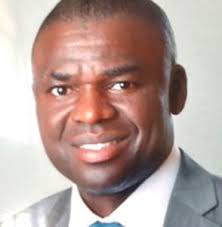WHO tasks African leaders on accelerated efforts, funding to end TB

Doosuur Iwambe, Abuja
The World Health Organization (WHO) has called on African leaders to adopt policies and programmatic actions that will promote a multi-sectoral response as well as hasten the elimination of tuberculosis in Africa.
WHO Regional Director for Africa, Dr. Matshidiso Moeti, who made the call in her message to commemorate the 2019 World Tuberculosis (TB) Day with the theme: “It’s time” said, current levels of investment by governments towards TB care and prevention must be increased.
She said, even though the 2018 WHO Global Report had indicated that the disease burden caused by TB is falling globally, in all WHO regions, and in most countries, it is not fast enough to reach the first milestones of the End TB Strategy in 2020
To this end, Dr. Moeti said that the solution to end TB is to ensure that core TB control services are funded from domestic resources, thereby calling on regional governments to implement universal health coverage to ensure quality assured preventative, diagnostic, treatment and TB care services.
“In the WHO African Region, declining cases of TB cases (4% per year) placed it second among all WHO regions over the period between 2013 and 2017.
Also, particularly impressive reductions (4–8% per year) have occurred in southern Africa (e.g. Lesotho, Namibia, South Africa, Zambia and Zimbabwe), following a peak in the HIV epidemic and the expansion of TB and HIV prevention and care.
“To sustain these advances, current levels of investment by national governments towards TB care and prevention must be increased as they currently fall far short of levels required to end the epidemic by the end date of the Sustainable Development Goals (SDGs).
“Likewise, efforts must be made to identify and remove the challenges that are slowing down progress, as well as adopt and roll out the most cost-effective policy options and interventions.
“Building on the successes of the recent past and fulfilling the commitments made by our political leaders, national governments need to adopt policy and programmatic actions to foster a multi-sectoral response to end the epidemic.
“Within the broader context of a revitalized Primary Health Care system, these measures should include initiatives to look for and effectively treat all existing cases, and scaling up preventive treatment for high-risk populations, especially people living with HIV and child contacts of known TB cases.
“To end the epidemic by 2030, we also need to ensure universal access to the WHO recommended rapid molecular tests as first-line tests for diagnosis for all presumptive TB cases, as well as to adopt the new WHO recommended drugs and drug combinations for treating drug-resistant TB,” she said.
She further reaffirmed WHO commitment to work with governments, other partners and communities to support actions towards ending the TB epidemic by 2030.
The theme of this year’s celebration of World TB Day is “It’s time.”








